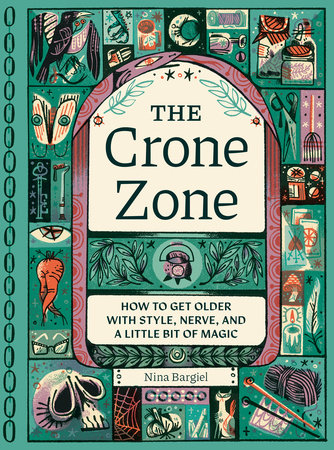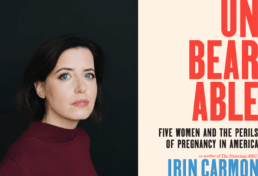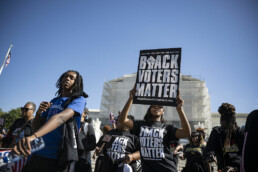Hell Hath No Fury Like a Woman Voting
 November 6, 2025 Greetings, Meteor readers, Welcome to the Mamdaniverse, where hope is alive and all foods have seasoning you can actually taste.  Today’s newsletter is just like my high school: all girls, with a couple of body slams to end the night. Should be fun! Shannon Melero  WHAT'S GOING ONSuper graphic ultra modern girls: The numbers are in, the Blue Wave has risen, and riding atop the crest on their vote-shaped surfboards are thousands upon thousands of women. According to exit poll data from the AP, in Tuesday’s three key races (New York, New Jersey, and Virginia), roughly 8 in 10 women supported Democrats, compared to 6 in 10 men. Young women in particular—and yes, we do mean Gen Z even though the rest of you are still young at heart—showed up and showed out for their candidates. What was it that rallied women under 30 to the polls this year? “They want a leader who is going to push back on the misogynist rhetoric coming from these conservative leaders,” explains Rachel Janfaza, the founder of The Up and Up, a research and strategy firm focused on Gen Z. “The way that women have been talked about, especially in some of these right-wing ecosystems, has really pissed women off.” Janfaza’s research also shows that younger women “are really taking their vote seriously…[and] their civic engagement seriously,” which doesn’t surprise her. Young millennials and Gen Zers are struggling under an economy that’s been unstable for years—economics and cost of living were the highest priority issues for a majority of voters this election cycle—and also grappling with the rollback of abortion rights. “This is an issue-driven block of women,” Janfaza says. “They’ve grown up with less rights, which is very motivating, and they’re looking to back candidates who will show up and fight for them.” AND:
 (VIA GETTY IMAGES)
 The Future of Women’s Wrestling Is Big and Bright in TexasWelcome to MetroplexBY SCARLETT HARRIS  WRESTLER AND METROPLEX OWNER, ATHENA (COURTESY OF METROPLEX WRESTLING) On the last Sunday in October, in a suburb nestled between Dallas and Fort Worth, Texas, a group of women came together for an all-women’s wrestling show hosted at Metroplex Wrestling, a woman-owned wrestling school. Titled Who Runs the World?, the show was the brainchild of All Elite Wrestling star Athena, and it followed a rousingly successful inaugural show in August; both shows featured some of the biggest names in independent women’s wrestling, including Mercedes Moné, Nyla Rose, and Kris Statlander. A third production is scheduled for January 2026, and will also stream on Twitch. This sequence of events on the indie scene—three all-women shows in six months!—is a welcome contrast to the mainstream entity World Wrestling Entertainment, which has staged just two all-women wrestling shows in its 70 year history. A TAG TEAM BATTLE BETWEEN GIGI REY & LADY BIRD MONICE MONROE AND ANARKID ASH & LONDYN DIOR (COURTESY OF METROPLEX WRESTLING) Progress for women in WWE has been slow and fitful. Earlier this year, WWE hosted Evolution 2, the much-anticipated sequel to its 2018 show of the same name. In an industry dominated by polarizing macho figureheads like the late Hulk Hogan, both Evolutions were hard-won victories in what we can call wrestling’s second-wave feminist movement, which began in earnest a decade ago and coincided with the growing popularity of women in other sports. And the wrestling on display was an evolution from the slaps, hair pulling, and derisive use of the term “Diva” that characterized women’s appearances in WWE in the decades prior. Trust that there was no sudden awakening, though. For 40 years, WWE was helmed by Vince McMahon, who has been accused of sexual abuse and is currently embroiled in a sex trafficking lawsuit. Despite the fact that current WWE leaders Paul “Triple H” Levesque and Stephanie McMahon have been congratulating themselves for platforming women’s wrestling, most wrestling fans—40 percent of whom are women—credit progress to star women wrestlers themselves, including Becky Lynch, Charlotte Flair, and Mercedes Moné (known as Sasha Banks in WWE, which she left acrimoniously in 2022). Meanwhile, in the independent wrestling scene, women competitors have been thriving for years—in promotions like Japan’s Stardom, London’s Pro Wrestling EVE (which just crowned its first transgender women’s champion in Nyla Rose), and Chicago-based Shimmer, just to name a few. “Without Shimmer, we might not be where we are today,” says former wrestler and Shimmer manager Allison Danger. “We were able to bring a lot more variety. Having different people from different backgrounds, different races, was making women’s wrestling more diverse.” (Danger is clear to credit past icons, though, “like Mildred Burke, the Jumping Bomb Angels, the Glamour Girls, Madusa, Trish and Lita.”)  THE ICONS WHO PAVED THE WAY, TRISH AND LITA (VIA GETTY IMAGES) The future of women’s wrestling can often be difficult to see because of the long shadow cast by the WWE, a behemoth that seems to only be getting bigger as it aligns with entrenched power. (Levesque has been a frequent visitor to the White House.) The WWE also seems to be getting more shameless: Many fans were turned off by the return of wrestler Brock Lesnar, who is named in the sex trafficking lawsuit against disgraced former WWE chairman Vince McMahon; and WWE has announced that WrestleMania 44 will be held in Saudi Arabia in 2027, even as the kingdom continues to be accused of sportswashing its human rights atrocities. It remains to be seen whether these all-women’s wrestling shows will have staying power. Shimmer has been on hiatus since 2021, and former WWE wrestler Mickie James has experimented with partnering with different promotions—and even different countries—to find the right fit for her all-women shows. It took WWE seven years to produce a second Evolution, despite having all the money in the world and a wealth of talent (most other WWE premium live events are annual). But do these shows need the backing of large companies like WWE? Sure, it would be great to get an annual Evolution, but women like Athena, James, and Danger remain relentless and collaborative, doing the hard work with a fraction of the resources to bring women’s wrestling to fans hungry for it. And they’re optimistic about the future. Danger points to the rise in platforms where wrestling can be consumed (a far cry from the tape-trading days when Shimmer was first launched), and says streaming has democratized the sport. Who Runs the World? streams on Twitch. There’s more opportunity than ever, she contends—and the next generation of wrestlers and promoters will seize it. Says Danger: “We’re in great hands.”  FOLLOW THE METEOR Thank you for reading The Meteor! Got this from a friend? Sign up for your own copy, sent Tuesdays and Thursdays.
|
![]()
The Future of Women’s Wrestling Is Big and Bright in Texas
Welcome to Metroplex
By Scarlett Harris
On the last Sunday in October, in a suburb nestled between Dallas and Fort Worth, Texas, a group of women came together for an all-women’s wrestling show hosted at Metroplex Wrestling, a woman-owned wrestling school. Titled Who Runs the World?, the show was the brainchild of All Elite Wrestling star Athena, and it followed a rousingly successful inaugural show in August; both shows featured some of the biggest names in independent women’s wrestling, including Mercedes Moné, Nyla Rose, and Kris Statlander. A third production is scheduled for January 2026, and will also stream on Twitch.
This sequence of events on the indie scene—three all-women shows in six months!—is a welcome contrast to the mainstream entity World Wrestling Entertainment, which has staged just two all-women wrestling shows in its 70 year history.

Progress for women in WWE has been slow and fitful. Earlier this year, WWE hosted Evolution 2, the much-anticipated sequel to its 2018 show of the same name. In an industry dominated by polarizing macho figureheads like the late Hulk Hogan, both Evolutions were hard-won victories in what we can call wrestling’s second-wave feminist movement, which began in earnest a decade ago and coincided with the growing popularity of women in other sports. And the wrestling on display was an evolution from the slaps, hair pulling, and derisive use of the term “Diva” that characterized women’s appearances in WWE in the decades prior. Trust that there was no sudden awakening, though. For 40 years, WWE was helmed by Vince McMahon, who has been accused of sexual abuse and is currently embroiled in a sex trafficking lawsuit. Despite the fact that current WWE leaders Paul “Triple H” Levesque and Stephanie McMahon have been congratulating themselves for platforming women’s wrestling, most wrestling fans—40 percent of whom are women—credit progress to star women wrestlers themselves, including Becky Lynch, Charlotte Flair, and Mercedes Moné (known as Sasha Banks in WWE, which she left acrimoniously in 2022).
Meanwhile, in the independent wrestling scene, women competitors have been thriving for years—in promotions like Japan’s Stardom, London’s Pro Wrestling EVE (which just crowned its first transgender women’s champion in Nyla Rose), and Chicago-based Shimmer, just to name a few. “Without Shimmer, we might not be where we are today,” says former wrestler and Shimmer manager Allison Danger. “We were able to bring a lot more variety. Having different people from different backgrounds, different races, was making women’s wrestling more diverse.” (Danger is clear to credit past icons, though, “like Mildred Burke, the Jumping Bomb Angels, the Glamour Girls, Madusa, Trish and Lita.”)

The future of women’s wrestling can often be difficult to see because of the long shadow cast by the WWE, a behemoth that seems to only be getting bigger as it aligns with entrenched power. (Levesque has been a frequent visitor to the White House.) The WWE also seems to be getting more shameless: Many fans were turned off by the return of wrestler Brock Lesnar, who is named in the sex trafficking lawsuit against disgraced former WWE chairman Vince McMahon; and WWE has announced that WrestleMania 44 will be held in Saudi Arabia in 2027, even as the kingdom continues to be accused of sportswashing its human rights atrocities.
It remains to be seen whether these all-women’s wrestling shows will have staying power. Shimmer has been on hiatus since 2021, and former WWE wrestler Mickie James has experimented with partnering with different promotions—and even different countries—to find the right fit for her all-women shows. It took WWE seven years to produce a second Evolution, despite having all the money in the world and a wealth of talent (most other WWE premium live events are annual). But do these shows need the backing of large companies like WWE? Sure, it would be great to get an annual Evolution, but women like Athena, James, and Danger remain relentless and collaborative, doing the hard work with a fraction of the resources to bring women’s wrestling to fans hungry for it.
And they’re optimistic about the future. Danger points to the rise in platforms where wrestling can be consumed (a far cry from the tape-trading days when Shimmer was first launched), and says streaming has democratized the sport. Who Runs the World? streams on Twitch.
There’s more opportunity than ever, she contends—and the next generation of wrestlers and promoters will seize it. Says Danger: “We’re in great hands.”

Scarlett Harris is a culture critic, author of A Diva Was a Female Version of a Wrestler: An Abbreviated Herstory of World Wrestling Entertainment, and editor of The Women Of Jenji Kohan.
We Vote at Dawn!
 November 3, 2025 Greetings, Meteor readers, We’re coming to you on a Monday this week because we’ll be out of the office tomorrow so that everyone has time to get their vote on.  In today’s newsletter, we’re talking about the unsuckification of the country. Plus, a record-breaking day at the New York City Marathon. xoxo, The Meteor team  WHAT'S GOING ONOff to the races: It’s the first general election since Trump began his second term in office, and, to put it in the most technical terms available, shit is rough out here. The government shutdown trudges on (although our representatives are apparently capable of finding time to do this), Head Start centers are turning children away, food pantries are struggling—it all sucks. But in the sage words all therapists have been uttering since the dawn of therapy: you’ve got to take it one day at a time. And tomorrow is a great day to take a step toward the unsuckification of the nation. First of all, the gubernatorial races in New Jersey and Virginia will be a strong signifier of what we can expect for the midterm elections. In Jersey, Democrat Mikie Sherrill is hoping to keep the state blue while pledging to safeguard New Jersey’s existing abortion protections, something her opponent Jack Ciattarelli has sworn to undo if elected. Meanwhile in Virginia, the economy and a housing affordability crisis are top of mind for voters choosing between Democrat Abigail Spanberger and Republican Lt. Governor Winsome Earl-Sears. Virginia is also the only state in the South not to have a post-Roe abortion ban, and Spanberger wants to keep it that way. (Earl-Sears has, per The Guardian, compared abortion to genocide.) The Diamond of the Season (the race everyone is talking about) is the mayoral race in New York between Zohran Mamdani and Andrew Cuomo. (We’re told Curtis Sliwa is also hanging around.) Putting the New York of it all to the side, this race is particularly symbolic. Will the people choose the status quo—a known sex pest and establishment politico—or take a chance on a newcomer who could represent a bold new era for the Democratic Party nationwide? While most of the coverage of this race has focused on Mamdani’s role as the possible first Muslim mayor of New York—and the Islamophobia aimed at his candidacy—don’t sleep on the significance of his embrace of universal child care (an idea that sounds radical but shouldn’t be). If he prevails, as he’s favored to, politicians may finally see it as a winning issue. Perhaps less glamorous but equally vital are the elections in California and Pennsylvania. The Golden State is voting on Prop 50, which would allow for new congressional maps to be drawn up and used through 2030. Think of it as reverse gerrymandering or, as we’re calling it, mandergerrying: First Texas jumped into some unusual mid-decade redistricting, reducing the impact of Black and brown voters; now, in response, California Dems are hoping to mandergerry their map to maximize their presence in Congress. And back in Pennsylvania, there are three state supreme court seats on the ballot—if the Democrats currently holding them are ousted, it could have huge implications for voting rights, abortion rights and more in a currently moderate state. So, yeah, there’s a lot on the line tomorrow—including local elections, which matter more than ever. Will those new school board members fight book bans, or cave? Will your city council hand surveillance info to ICE? The answer, in part, is up to you. Go do your thing—and we’ll see you on the other side. AND:
 OBIRI'S RECORD-BREAKING FINISH. (VIA GETTY IMAGES)
  FOLLOW THE METEOR Thank you for reading The Meteor! Got this from a friend?
|
![]()
Head Start is at Risk
 October 30, 2025 Happy Halloween eve, Meteor ghouls, Anyone sporting any super cool costumes this weekend? I’m dressing in the same one I wore last year: exhausted mom whose sanity relies entirely on very long showers. Or maybe I’ll join the fray and dress up as Rumi.  I KNOW YOU DIDN'T THINK I WOULD DRESS UP AS STAGE RUMI. SWEATPANT RUMI FOR THE WIN. In today’s newsletter, we take a look at the larger implications of losing access to Head Start. Plus, three questions about embracing your inner crone. Goin up, Shannon Melero  WHAT'S GOING ONA much bigger picture: At the end of this week, more than 100 Head Start centers in the U.S. and Puerto Rico will not receive their funding due to the government shutdown and may have to close their doors. That could leave 58,000 children without the early education programming and meals provided by Head Start centers. In some states, closures have already begun, and communities are scrambling to fill in the childcare gap left behind. On the surface, all of this may seem like an unfortunate but temporary side effect of the shutdown—a harm that can be undone once we flip a switch and turn the government back on. But what does it look like when you zoom out ever so slightly? It looks like the slow but successful execution of Project 2025. In its entirety, we know that Project 2025, released in April 2023, is a manifesto against the poor, immigrants, and anyone else who is not a white, Christian, heterosexual, cisgendered male. Some lowlights include: reversing FDA approval of mifepristone, ending DEI programs, and eliminating the Department of Education. And, relevant to this week’s news, ending Head Start. Project 2025 claims the Head Start program has “little or no long-term academic value for children,” which is why Roger Severino (who authored this section of Project 2025) lists “Eliminate Head Start” as part of the “conservative promise.” The current shutdown is proving effective in delivering on that promise. If I’m starting to sound like a gal who wears a tin foil hat in her spare time, just take a look at the facts. The National Women’s Law Center identified targeted attacks on Head Start from the administration beginning in January and continuing every month. Another tenet of P25 and this administration is to create a scenario where more parents are staying home to raise their own children or leaving their children with relatives. In the conservative worldview, day care is for parents who simply don’t want to parent, which would make Head Start—which has been around since 1965—a key part of the problem, funded by tax dollars. It’s all connected. But the attacks on Head Start are helping to create a Grand Canyon-sized fissure between the wealthy and the working class by playing up the narrative that those with means shouldn’t be responsible for caring for those without. Conservatives have repeatedly called federal safety programs for the poor a misuse of taxpayer dollars, and Head Start and free early childhood education programs, often described as handouts by right-leaning pundits, fit perfectly into the false narrative of wealthy taxpayers being burdened by the needs of medium-to-low earners. If the cuts to federal safety programs continue, they may also serve another purpose: removing the poor from the political process. People often don’t get involved in politics when they’re spending their time hustling just to get food on the table. So it’s not just that SNAP isn’t being funded next month. It’s not just some Head Starts preparing to close. It’s not just funding shortages for WIC, the program that helps moms feed their kids. It’s all that and the increased militarized police presence in lower-income neighborhoods. It’s all that and kidnapping people of color off the streets and disappearing them into the system. It’s what Project 2025 called for. The government shutdown is simply delivering. AND:
 WHERE YOU BEEN GIRL? (VIA GETTY IMAGES)
 WEEKEND PLANS Three Questions About...Embracing Your Crone EraIt's a thing, says Nina BargielBY BRIJANA PROOKER COURTESY OF PENGUIN RANDOM HOUSE In the age of Ozempic and deep plane facelifts, in which every outward sign of aging is reversible as long as you have the luxury of money, author Nina Bargiel has a revolutionary idea: Embrace your crone era. It’s a spooky concept, particularly post-2020, when staring at our faces over Zoom prompted a plastic surgery boom, pushing us past body positivity and even body neutrality, all the way into mainstream body hate. But it’s Halloween, the perfect time to honor our wisdom and warts. In THE CRONE ZONE: How To Get Older With Style, Nerve and a Little Bit of Magic, children’s TV writer Bargiel, 53 (who famously wrote the bra episode of Lizzie McGuire), uses the triple goddess concept to answer a key question: what's a crone (AKA any woman over 35, according to my Instagram feed) to do? “Fuck it,” Bargiel writes. You’re a self-declared crone in your 50s. How would you describe “crone” for the modern era? So Baba Yaga has always been my bitch. Baba Yaga is the [Slavic] crone who has self-selected herself into the woods. She lives in a hut atop chicken legs. She has a terrifying fence made of human bones. When a traveler gets lost and knocks on her door, sometimes Baba Yaga eats them. And my thought is, this woman has given every indication she does not want to be bothered. So if you’re knocking on her door, and she ends up frying up your liver, you kind of deserve it, because she has made it very clear: leave her alone. For me, a crone is a woman who is sick and tired of making herself small to make other people feel comfortable. I refer to it as when your inner “fuck you” becomes your outer “fuck you.” In your book, you say, “Whether gracious grandmother or wicked witch, the crone is always cast as a woman whose best days are behind her.” What are we getting wrong about how we understand crones? The crone is overlooked and looked down upon, yet the crone is filled with magic. It’s funny because society [says] you're invisible and you're useless. But [crones also] have wisdom and power. If you think about Shakespeare and Macbeth and the three witches, I mean, they're terrifying. Like, they are hags, but they will mess you up. And I will say, [the definition of] “older women” keeps getting younger by the day. I was talking to a woman at one of my [book] signings…about my crone book, and she was like, “I need this because people are treating me this way.” She's 28 years old. I love your crone touchstones: “Wisdom, to know who we are, Knowledge, to understand what we want, and Fuck It, to do what we please.” What does “Fuck It” mean to you? [As a woman in a male-dominated writer’s room], you’ve got to be nice, you’ve got to get along. I played that [role] for a long time, and I discovered that it didn't get me any further. I would bite my tongue, and then these men wouldn't hire me again anyway. So why was I biting my tongue? I might as well just be 100% who I am. When COVID hit, and I had a divorce, and the entertainment industry was taking a bad hit, I just got sick of pretending everything was fine all the time. I sold my house [in Los Angeles] and moved in with my parents [in Illinois] and got a job working in the cheese department at Whole Foods. And there are people who are like, “You shouldn't say that because people won't take you seriously as a writer.” If people don’t take me seriously as a writer, after 25 years, after two Emmy nominations, after two Kids’ Choice Awards and a Gracie Allen Award, they were never going to take me seriously. So my Fuck It is, if you look at me as lesser because I'm part of the labor force, then I feel sorry for you, because life's gonna hit you hard. Another part of Fuck It is I am 53, and my boyfriend just turned 35, so he is 18 years younger than I am, and fuck it, I don't care. There are a lot of people that have said a lot of things, and by the way, they're mostly men. Almost every woman, when they find out, are like, “Oh, good for you, sister.” If someone's gonna try to shame me for that, fuck it. Women cannot build a hut atop chicken legs or have a fence made of human bones [like Baba Yaga]. But we can wear headphones. We can have all of these things that say, “Do not bother me,” and yet the travelers, who are usually men, still come knocking at our doors. Unfortunately, we cannot fry up their livers, but we do not have to entertain whatever it is they have to say.  Brijana Prooker is a Los Angeles-based freelance journalist and essayist covering health, gender, and culture. She's a proud pit bull and cat mama whose work has appeared in ELLE, Washington Post, Good Housekeeping, and Newsday.  FOLLOW THE METEOR Thank you for reading The Meteor! Got this from a friend?
|
![]()
Three Questions About...Embracing Your Crone Era
It’s a thing, says Nina Bargiel.
BY BRIJANA PROOKER
In the age of Ozempic and deep plane facelifts, in which every outward sign of aging is reversible as long as you have the luxury of money, author Nina Bargiel has a revolutionary idea: Embrace your crone era. It’s a spooky concept, particularly post-2020, when staring at our faces over Zoom prompted a plastic surgery boom, pushing us past body positivity and even body neutrality, all the way into mainstream body hate. But it’s Halloween, the perfect time to honor our wisdom and warts.

In THE CRONE ZONE: How To Get Older With Style, Nerve and a Little Bit of Magic, children’s TV writer Bargiel, 53 (who famously wrote the bra episode of Lizzie McGuire), uses the triple goddess concept to answer a key question: what's a crone (AKA any woman over 35, according to my Instagram feed) to do? “Fuck it,” Bargiel writes.
You’re a self-declared crone in your 50s. How would you describe “crone” for the modern era?
So Baba Yaga has always been my bitch. Baba Yaga is the [Slavic] crone who has self-selected herself into the woods. She lives in a hut atop chicken legs. She has a terrifying fence made of human bones. When a traveler gets lost and knocks on her door, sometimes Baba Yaga eats them. And my thought is, this woman has given every indication she does not want to be bothered. So if you’re knocking on her door, and she ends up frying up your liver, you kind of deserve it, because she has made it very clear: leave her alone.
For me, a crone is a woman who is sick and tired of making herself small to make other people feel comfortable. I refer to it as when your inner “fuck you” becomes your outer “fuck you.”
In your book, you say, “Whether gracious grandmother or wicked witch, the crone is always cast as a woman whose best days are behind her.” What are we getting wrong about how we understand crones?
The crone is overlooked and looked down upon, yet the crone is filled with magic. It’s funny because society [says] you're invisible and you're useless. But [crones also] have wisdom and power. If you think about Shakespeare and Macbeth and the three witches, I mean, they're terrifying. Like, they are hags, but they will mess you up. And I will say, [the definition of] “older women” keeps getting younger by the day. I was talking to a woman at one of my [book] signings…about my crone book, and she was like, “I need this because people are treating me this way.” She's 28 years old.
I love your crone touchstones: “Wisdom, to know who we are, Knowledge, to understand what we want, and Fuck It, to do what we please.” What does “Fuck It” mean to you?
[As a woman in a male-dominated writer’s room], you’ve got to be nice, you’ve got to get along. I played that [role] for a long time, and I discovered that it didn't get me any further. I would bite my tongue, and then these men wouldn't hire me again anyway. So why was I biting my tongue? I might as well just be 100% who I am.
When COVID hit, and I had a divorce, and the entertainment industry was taking a bad hit, I just got sick of pretending everything was fine all the time. I sold my house [in Los Angeles] and moved in with my parents [in Illinois] and got a job working in the cheese department at Whole Foods. And there are people who are like, “You shouldn't say that because people won't take you seriously as a writer.” If people don’t take me seriously as a writer, after 25 years, after two Emmy nominations, after two Kids’ Choice Awards and a Gracie Allen Award, they were never going to take me seriously. So my Fuck It is, if you look at me as lesser because I'm part of the labor force, then I feel sorry for you, because life's gonna hit you hard.
Another part of Fuck It is I am 53, and my boyfriend just turned 35, so he is 18 years younger than I am, and fuck it, I don't care. There are a lot of people that have said a lot of things, and by the way, they're mostly men. Almost every woman, when they find out, are like, “Oh, good for you, sister.” If someone's gonna try to shame me for that, fuck it.
Women cannot build a hut atop chicken legs or have a fence made of human bones [like Baba Yaga]. But we can wear headphones. We can have all of these things that say, “Do not bother me,” and yet the travelers, who are usually men, still come knocking at our doors. Unfortunately, we cannot fry up their livers, but we do not have to entertain whatever it is they have to say.

Brijana Prooker is a Los Angeles-based freelance journalist and essayist covering health, gender, and culture. She's a proud pit bull and cat mama whose work has appeared in ELLE, Washington Post, Good Housekeeping, and Newsday.
Forty Million Empty Stomachs
 October 28, 2025 Greetings, Meteor readers, I voted yesterday. When are you going? Soon? Yeah? Great! May your sticker be extra adhesive. In today’s newsletter, we look at the looming SNAP cuts. Plus, Irin Carmon tells Rebecca Carroll about her new book, Unbearable: Five Women and the Perils of Pregnancy in America. Hotties vote early, Shannon Melero  WHAT'S GOING ONThe SNAP gap: This week, roughly 40 million people will not receive their scheduled November funds from the Supplemental Nutrition Assistance Program (SNAP). Which means forty million people will spend most, if not all of November, struggling to feed themselves. As the government shutdown approaches the one-month mark, officials seem no closer to a solution and are instead pointing fingers over who is to blame for not distributing the billions of dollars of contingency funding that could alleviate the problem. In the meantime, those in need are left with limited options. “Cutting a federal safety net and telling people to go to a charity is not a solution, it’s a drop in the bucket,” says Greg Silverman, executive director of New York’s West Side Campaign Against Hunger. Silverman, who has worked in the food insecurity space across the world, is frustrated. “We can’t make up the gap on SNAP,” he says. “We’re not gonna volunteer our way out of this.” He explains that in his city alone, one in ten people deals with food insecurity, and in the weeks since the government shut down, emergency distribution groups have already had to step up their efforts to keep communities fed. “We’ve been adding more micro distribution points in neighborhoods where we have the highest number of folks we serve. We do that to get food closer to people so it’s cheaper for them, they save time and money on transport, and they also feel safer getting food closer to home.” While this is a boon to recipients, Silverman knows it’s not enough. Here’s what would be better: “ We need our national elected officials to have the USDA use the funds that are already allocated,” he says. “It exists, the money is there. They don’t need to open up the government to do this; they need to just send that money out to the states to be able to distribute food to people in need.” (If you are looking for ways to pressure your elected officials to act, the Food Research and Action Center has a number of options and step-by-step instructions.) In New York, this has already happened. Yesterday, Governor Kathy Hochul announced the state would be fast-tracking $30 million in emergency food aid for SNAP recipients. “Those weren't additional funds,” Silverman, who was at the press conference when it was announced, explains. “Those were previously allocated funds that [are] being fast-tracked to get out into the community faster.” Across the country, states are also suing the administration for failing to keep food benefits active. These efforts are good and necessary, but they are likely to move slowly through the court system, and won’t put dinner on the table this weekend. So what can the average person do today? “Frontline organizations need dollars right now because they’re out here having to buy more and more food,” Silverman says. In other words: We may not be able to volunteer our way out of this mess, but we can volunteer through. “Everyone can volunteer, whether it's once a year, once a quarter, once a month, once a week. If you have the funds, give them directly to organizations in need. If you have the time, give that.” If you have been impacted in any way by the government shutdown, please visit findhelp.org for resources in your area. If you can donate time or money, please choose a food pantry local to you. AND:
 The Complex Landscape of Pregnancy in AmericaA new book dives into what the experience is like—and whyBY REBECCA CARROLL  (COURTESY OF SIMON AND SCHUSTER, AUTHOR PHOTO BY SOPHIE SAHARA) If you’ve ever been pregnant (to term or not), you know that suddenly your choices are of public interest, and sometimes outright judgment. Pregnancy is a deeply personal experience that also inescapably involves power, vulnerability, politics, and a litany of unjust systems built for only certain beneficiaries. In her latest book, Unbearable: Five Women and the Perils of Pregnancy in America, journalist Irin Carmon weaves together narrative stories and reporting to create a lucid, sometimes heartbreaking, chronicle of how pregnant people are guided, or too often misguided, to navigate the experience in America. Rebecca Carroll: I want to start by asking about something you wrote in the book’s introduction, which is that “being pregnant in America means bearing the consequences of separating one form of reproductive care, abortion, from everything else.” What is “everything else,” and what do you mean? Irin Carmon: All other forms of reproductive medicine—prenatal care, birth, infertility, pregnancy loss—or even gynecological care in general. Before the white male takeover of medicine in the United States and Europe [in the mid-19th century], all reproductive care [including abortion] was more integrated into communal life, really across cultures. It was a group of women who were surrounding somebody at different stages of their reproductive life, from the onset of menarche through pregnancy and childbearing. I’m not saying that that system was perfect or that the old way was the right way, but I was really struck reading the history of the first abortion bans—as we live under the yoke of the new abortion bans, which are even more Draconian and enforced with much more efficacy—that abortion bans and the white male medical establishment takeover of medicine were inextricably linked to each other. It struck me as one of the many original sins of [modern] medical care. The other one being that the foundation of contemporary gynecology and obstetrics was American enslavement, and the unjust experimentation on enslaved women. The part about experimenting on enslaved Black women was really hard to read—I actually physically winced. I think the narrative around childbearing and rearing for Black women in America is so fraught, from the brutal, harrowing reality of how it all started with enslaved Black women, to the way that Toni Morrison used to talk about mothering as this gift of being able to keep and mother our children. How did you reconcile the different ways that Black women and white women experience pregnancy care? Dr. Yashica Robinson [an Alabama-based OBGYN and former abortion care provider] was actually one of the starting points for me wanting to write this book. In so many ways, the work that she does is the embodiment of what could be a better way. I first met her in 2014 when I was reporting for MSNBC, and I had come to interview [her husband], who ran the only Black-owned clinic in Alabama. Dr. Robinson walked into the room, and when she started talking, I thought, “Who is this? Did I come to interview the wrong person?” I thought, this is the person who I want to learn from, and to help me understand the truly bifurcated, painful dichotomy you are talking about. Another Black woman I write about in the book, Christine Fields, died in the same hospital as Maggie Boyd, a white woman I also write about. They were both harmed by the same doctor. But…Maggie was able to come home and raise her son because when her husband screamed for help, he was listened to. And when Jose [Christine’s husband] screamed for help, they called security on him, and wouldn’t let him be in the room. They left Christine alone, maybe because she was being treated like a problem, [and] we know from the research that Black women are much more likely to be treated in medical settings as a problem when they question the treatment or the care that they’re getting. When I had an abortion in the 90s, even though I didn’t hesitate, I still felt so much shame, in no small part because of the picketers outside the clinic calling me a murderer. Where do you think shame falls today in the broader conversation? The shame of being a “bad mother,” whatever that means to the person uttering it, is very powerful. And so the anti-abortion movement has done a very effective job in making people—even when they’re feeling a sense of relief, which is the most commonly cited feeling around an abortion—feel shame for being a “bad mother.” I write about the work of Lynn Paltrow [founder and executive director of Pregnancy Justice] and Dorothy Roberts [civil rights scholar and author of Killing the Black Body] in the book, and I think they have so powerfully shown how this shaming of pregnant people’s very existence is so malleable that it can encompass somebody with a substance abuse problem, as well as somebody who drinks a glass of wine. Everybody thinks, “I won't be the person whose behavior is scrutinized.” [But] the post-Dobbs era has made clear just how broad the tentacles of policing pregnancy can be. How has your own pregnancy experience been impacted by the stories and experiences you write about in the book? I was postpartum when I read about Hali Burns getting arrested six days after her son was born; she was arrested in her son’s hospital room. And so I’m mindful of the fact that I’ve been incredibly lucky, but that I feel a sense of deep connection to these women [in the book]. The work of this book was in trying to go deeper to understand the factors in the systems that led us to any given situation, because I’ve been the recipient of some low-key shitty pregnancy care, and I’ve had some incredible pregnancy care. For people who choose to go down this path, everybody deserves to have access to what I had access to.  FOLLOW THE METEOR Thank you for reading The Meteor! Got this from a friend?
|
![]()
The Complex Landscape of Pregnancy in America
A new book dives into what the experience is like—and why
By Rebecca Carroll
If you’ve ever been pregnant (to term or not), you know that suddenly your choices are of public interest, and sometimes outright judgment. Pregnancy is a deeply personal experience that also inescapably involves power, vulnerability, politics, and a litany of unjust systems built for only certain beneficiaries. In her latest book, Unbearable: Five Women and the Perils of Pregnancy in America, journalist Irin Carmon weaves together narrative stories and reporting to create a lucid, sometimes heartbreaking, chronicle of how pregnant people are guided, or too often misguided, to navigate the experience in America.
Rebecca Carroll: I want to start by asking about something you wrote in the book’s introduction, which is that “being pregnant in America means bearing the consequences of separating one form of reproductive care, abortion, from everything else.” What is “everything else,” and what do you mean?
Irin Carmon: All other forms of reproductive medicine—prenatal care, birth, infertility, pregnancy loss—or even gynecological care in general. Before the white male takeover of medicine [in the mid-19th century], all reproductive care [including abortion] was more integrated into communal life, really across cultures. It was a group of women who were surrounding somebody at different stages of their reproductive life, from the onset of menarche through pregnancy and childbearing. I’m not saying that that system was perfect or that the old way was the right way, but I was really struck reading the history of the first abortion bans—as we live under the yoke of the new abortion bans, which are even more draconian and enforced with much more efficacy—that abortion bans and the white male medical establishment takeover of medicine were inextricably linked to each other.
It struck me as one of the many original sins of [modern] medical care. The other one being that the foundation of contemporary gynecology and obstetrics was American enslavement, and the unjust experimentation on enslaved women.
The part about experimenting on enslaved Black women was really hard to read—I actually physically winced. I think the narrative around childbearing and -rearing for Black women in America is so fraught, from the brutal, harrowing reality of how it all started with enslaved Black women, to the way that Toni Morrison used to talk about mothering as this gift of being able to keep and mother our children. How did you reconcile the different ways that Black women and white women experience pregnancy care?
Dr. Yashica Robinson [an Alabama-based OBGYN and former abortion care provider] was actually one of the starting points for me wanting to write this book. In so many ways, the work that she does is the embodiment of what could be a better way. I first met her in 2014 when I was reporting for MSNBC, and I had come to interview [her husband], who ran the only Black-owned clinic in Alabama. Dr. Robinson walked into the room, and when she started talking, I thought, “Who is this? Did I come to interview the wrong person?” I thought, this is the person who I want to learn from, and to help me understand the truly bifurcated, painful dichotomy you are talking about. Another Black woman I write about in the book, Christine Fields, died in the same hospital as Maggie Boyd, a white woman I also write about. They were both harmed by the same doctor. But…Maggie was able to come home and raise her son because when her husband screamed for help, he was listened to. And when Jose [Christine’s husband] screamed for help, they called security on him, and wouldn’t let him be in the room.
They left Christine alone, maybe because she was being treated like a problem, [and] we know from the research that Black women are much more likely to be treated in medical settings as a problem when they question the treatment or the care that they’re getting.
When I had an abortion in the 90s, even though I didn’t hesitate, I still felt so much shame, in no small part because of the picketers outside the clinic calling me a murderer. Where do you think shame falls today in the broader conversation?
The shame of being a “bad mother,” whatever that means to the person uttering it, is very powerful. And the anti-abortion movement has done a very effective job in making people—even when they’re feeling a sense of relief, which is the most commonly cited feeling around an abortion—feel shame for being a “bad mother.” I write about the work of Lynn Paltrow [founder and executive director of Pregnancy Justice] and Dorothy Roberts [civil rights scholar and author of Killing the Black Body] in the book, and I think they have so powerfully shown how this shaming of pregnant people’s very existence is so malleable that it can encompass somebody with a substance abuse problem, as well as somebody who drinks a glass of wine. Everybody thinks, “I won't be the person whose behavior is scrutinized.” [But] the post-Dobbs era has made clear just how broad the tentacles of policing pregnancy can be.
How has your own pregnancy experience been impacted by the stories and experiences you write about in the book?
I was postpartum when I read about Hali Burns getting arrested six days after her son was born; she was arrested in her son’s hospital room. And so I’m mindful of the fact that I’ve been incredibly lucky, but that I feel a sense of deep connection to these women [in the book]. The work of this book was in trying to go deeper to understand the factors in the systems that led us to any given situation, because I’ve been the recipient of some low-key shitty pregnancy care, and I’ve had some incredible pregnancy care. For people who choose to go down this path, everybody deserves to have access to what I had access to.
“I saw a photo and my heart just dropped”
|
Good evening, Meteor readers, I’ve just stepped off a plane from Vienna, so I’m jet-lagged and 40% pretzel. Tonight’s newsletter is even saltier, featuring upcoming election news, Malala Yousafzai’s new memoir, and a powerful conversation between The Meteor’s Rebecca Carroll and Deesha Dyer, who was the White House Social Secretary during the Obama administration and worked out of the now-demolished East Wing for much of her tenure. Let’s get to it. Mattie Kahn and The Meteor team  WHAT'S GOING ONThis week, President Trump took a literal wrecking ball to the East Wing of the White House and referred to its demolition as “the beautiful sound of construction.” But this was an historic space, with a legacy that meant something to a lot of people. (It has housed the office of every First Lady since Eleanor Roosevelt, for starters.) Several Democrats have pledged to investigate Trump’s “renovation,” and the public wants answers. In the meantime, though, those who worked in the East Wing are grieving—including former White House Social Secretary Deesha Dyer, who held that job during the last two years of the Obama administration. To get a sense of what this moment means, Rebecca Carroll called her.  DEESHA DYER WITH THE OBAMAS (COURTESY OF THE OBAMA WHITE HOUSE) Rebecca Carroll: It must feel so surreal to have been part of the first Black presidential administration in the White House, and to experience this demolition in real time—can you put that into words at all? Deesha Dyer: I can’t. It’s hard, Rebecca. I’ll be honest with you, because right now we’re having so many fights on so many other fronts. This morning I was helping a family get food and find housing. I avoided the photos [of the East Wing] and the conversations, because right now I need to focus on the basic needs of people. And then I saw a photo, and my heart just dropped. It affected me more than I thought it would. Because what we see, as one of my colleagues said, is a metaphor for everything happening right now. The destruction of the East Wing is a destruction for so much of what’s happening in our neighborhoods, in our communities. And as hard as it is going to be to ever rebuild the East Wing back, that is how hard it’s going to be to rebuild everything back. RC: Can you imagine a scenario in which President Obama would ever have been like, “I’m going to demolish…anything”? DD: No. He couldn’t even wear a tan suit. You know what I mean? I remember we had an event doing yoga in the East Room of the White House, and it was like, “Can we do that? Is it okay to lay yoga mats down on this historic floor?” Anything that we did, we did with extra scrutiny. I can’t even imagine if President Obama had cut down a bush outside of the White House. It would’ve been: “How dare you do this to America? You’re desecrating the country!” RC: You noted on Threads this week that three Black women have run events in the East Wing, including yourself, and you ran those events for the first Black First Lady. How symbolic does it feel that Trump chose the East Wing to demolish? DD: Very symbolic. That’s where the First Lady’s office has always been, and so it symbolizes what he thinks about women in general—and women in power specifically. The East Wing is also where people enter for tours and celebrations and all types of events. So it also says a lot about what he thinks about opening up the house, and making it really the people’s house. ... This is a property that is paid for by taxpayers. It is the people’s house. So it is not his. RC: And did you and the former First Lady ever have any conversations about the significance of the East Wing? DD: Definitely. All the time. Mrs. Obama talked to the entire staff about what her vision was for the East Wing and the White House. She always wanted to make it so it felt like everybody’s house. We made sure that from the minute you stepped in the door, you felt like this is a place that considered who you were, whether it was your culture, whether it was your family, whether it was anything. It’s jarring to see that all just gone. RC: What does that space mean to you personally? DD: I’m a Black girl from Philly—a hip-hop writer who had a community college education. I was also in charge of bringing to life the vision of Mrs. Obama and President Obama. And so for me, the space means possibility and hope. And we know that the history of the White House is not all grand. We know the implications of it being built by slaves. But we did our best to make sure that people saw themselves in it. That yes, our ancestors built the building, but we can dance in it. We can have joy in it. We can have our art in it. We can have our music in it, and be happy about that. RC: How are you taking care of you right now? DD: I’ll keep it a buck, I’m not. I’m constantly thinking, “This is terrible. This is a mess.” I’ll be on a walk with my husband and get a call about a food bank or a family in need. And so it's hard to take care of myself at this time. But I have to remember that I am a Black woman in this country that is a product of systems. I have type two diabetes and high cholesterol and high blood pressure. And so the system is also trying to kill us softly while it’s trying to kill us fast too. I need to continue going to therapy and taking my medicine and encouraging other people…. I’m not probably doing the best I could taking care of myself, but I’m trying.  THIS WEEK'S DEMOLITION OF THE WHITE HOUSE'S EAST WING (GETTY IMAGES) AND:
 FOLLOW THE METEOR Thank you for reading The Meteor! Got this from a friend?
|
![]()
"It's very violent out there"
 October 21, 2025 Greetings, Meteor readers, If you’re reading this, you’ve survived the great AWS outage of 2025. We salute you.  In today’s newsletter, we learn what it’s like to be a journalist in an occupied American city. Plus, the home renovation seen ‘round the world. Shannon Melero  WHAT'S GOING ONTiffany Walden, like so many Americans, is mentally, physically, existentially, and utterly tired. She’s a Chicago-based journalist and editor-in-chief of The Triibe, a local outlet covering Chicago’s Black and Latine communities. Walden and her team have been working non-stop since late August, when President Trump first started threatening to send troops to Chicago. Although those troops didn’t manifest in the way Trump was threatening, Walden calls what is happening now—a heightened militarized presence in residential areas—an occupation. “I know journalism is and has been behind in naming a spade a spade,” she says, “But we need to call things what they are. There are masked agents in camouflage carrying [weapons] and deploying tear gas on residential blocks.” And for journalists whose job it is to be on those blocks, the experience is intense.“We are a city that will resist,” says Walden. “I personally feel called to act in this moment and to document this moment, specifically for our audience,” But even so, “our team is a little bit scared,” she says. One of her reporters was teargassed by a federal agent while reporting in a nearby neighborhood, she says, and “we’re seeing some of our peers be doxxed by this administration.” This is unfortunately becoming a common experience for journalists, as the U.S. creeps slowly towards authoritarianism and, as the International Women’s Media Foundation reports, journalists are facing increased violence. (Even before this administration, the IWMF found, more than a third of women journalists surveyed had been threatened with physical violence—or had experienced it.) There have been a number of instances where federal agents have injured journalists with impunity, something Walden has witnessed firsthand. “We have helmets, goggles, gas masks, bulletproof vests…you could have all the training, but things happen so fast in places you don’t expect them to happen. It’s easy to still be caught off guard.” It may be difficult for many of us to truly understand the threats journalists are under—especially amid reports of so many peaceful protests coming out of the recent No Kings weekend. Surely if hundreds of thousands of people can gather successfully with no incident, things can’t be all that bad? “No Kings is a vibe fest,” Walden explains. “Everyone is trying to have the cutest sign…life is too serious to do that right now.” But she does see some value. “I recognize that everybody is not in a position to put their body on the line in the same way that other people are,” she says referring to the higher levels of violence at protests outside of ICE facilities or in neighborhoods that are being raided. “I respect that [No Kings] is an option for people who are not prepared for that,” she says. “Because at other protests, like [what we saw] in Broadview, [federal agents] are out there tear-gassing anybody. It's very violent out there.” “I don’t know what the end of all this looks like,” Walden says, “But I’ll be very thrilled when we get to it.” AND:
 GOD'S GIFT TO THE ART OF BALLET (VIA GETTY IMAGES)
 FOLLOW THE METEOR Thank you for reading The Meteor! Got this from a friend?
|
![]()
Protect the Vote
 October 17, 2025 Greetings Meteor readers, What a long, short week it’s been. Y'all good out there?  In today’s newsletter, we take a look at the latest attack on the Voting Rights Act. Plus, a sternly worded letter for Pete Hegseth.  WHAT'S GOING ONVoting woes: On Wednesday, voters from Georgia, Alabama, Mississippi, Texas, Louisiana, Florida, North Carolina, and South Carolina packed into seven different buses and made their way to Washington D.C. as part of a demonstration led by Black Voters Matter. They were there to show the very human issues at stake in Louisiana v. Callais, which the Supreme Court heard oral arguments for this week. The case is focused on a district map in Louisiana, which a group of “non-African American voters” argues is unconstitutional because two of its districts are majority-Black. The argument takes aim at the longstanding interpretation of Section 2 of the Voting Rights Act—widely considered to be “the main legal limitation on gerrymandering in many red states, particularly in the South,” per The New York Times. Section 2 bans voting processes or requirements that impede an individual’s right to vote based on race, and for 40-plus years has been used to require regions where people of color are the majority to actually draw the districts that way. That interpretation is, in the simplest terms, an insurance policy designed to “prevent ‘dilution' of minorities’ voting power and ensure that communities of Black, Latino or Asian voters can elect their preferred candidates,” per Politico. But Section 2 has come under fire from conservative judges, who charge that it has been giving an unfair advantage to Democrats (because apparently all minorities only vote for Dems? What political realignment?). They argue that the “race-based remedy” Section 2 provided was only intended to be temporary, and should perhaps be thrown out entirely. What does any of this legal-speak have to do with you, and could it shore up the GOP’s grip on America not just in the 2026 midterms but “for generations,” as one expert warned Newsweek? Short answer: yes. If the court votes to weaken the Voting Rights Act, as experts believe it will, Louisiana will be free to redraw its district maps and potentially eliminate the requirement for “majority-minority districts,” legal scholars tell the BBC, thereby diluting the power of Black voters in the state. And that opens the floodgates for other states to redraw their maps, and if you live in a state like Florida, Kansas, or North Carolina—all of which are considering new maps—that could affect your representation significantly. All of this is part of a larger scheme from the GOP to create more reliably Republican districts and have a stronger foothold in the House. So far, it’s succeeding. Nervous? While we await the Court’s decision, you can support groups like Black Voters Matter, Voto Latino, or When We All Vote. And don’t tune out when gerrymandering comes up! To quote our favorite John Oliver line: 'If you want to do something evil, put it inside something boring.” The GOP hopes it works. Let’s prove them wrong. AND:
 FOLLOW THE METEOR Thank you for reading The Meteor! Got this from a friend?
|
![]()
















